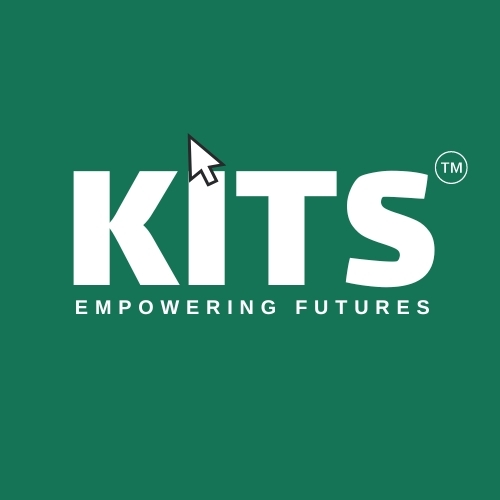Introduction to Blockchain Technology
Blockchain technology has revolutionized various industries by providing a secure and transparent method of recording transactions. With its increasing demand, Blockchain technology courses in Lahore are becoming popular among tech enthusiasts and professionals seeking to enhance their skills and advance their careers.
At Kyaas Institute of Technical Skills (KITS), we provide comprehensive courses that cover everything you need to know about blockchain technology. Here’s a detailed look at what our blockchain technology courses in Lahore have to offer.
Why Choose Blockchain Technology?
Blockchain offers numerous benefits, including enhanced security, transparency, and efficiency in transactions. It is the backbone of cryptocurrencies like Bitcoin and has applications in various sectors such as finance, healthcare, supply chain, and more. Grasping the concept of blockchain can unlock a wide range of career opportunities.
What is Blockchain?
Blockchain is a digital record-keeping system that saves transaction details on many different computers instead of just one. This technology ensures that each transaction is transparent, secure, and immutable. A blockchain consists of a series of blocks, each containing a record of transactions. Once a block is added to the chain, the information it holds is permanent and cannot be altered. This unique feature makes blockchain ideal for applications requiring high security and transparency.
Benefits and Drawbacks of Blockchain
Benefits:
- Transparency: Each transaction is recorded and visible to all participants in the network.
- Security: Blockchain uses special codes to protect data, making it very hard for hackers to break into.
- Decentralization: The absence of a central authority reduces the risk of corruption and fraud.
- Efficiency: Automated transactions reduce the need for intermediaries, speeding up processes and lowering costs.
Drawbacks:
- Scalability: As the number of transactions grows, the blockchain can become slow and cumbersome.
- Energy Consumption: The process of validating transactions (mining) consumes a significant amount of energy.
- Regulatory Challenges: The decentralized nature of blockchain can pose challenges for regulators and lawmakers.
Application of Cryptography in Blockchain
Cryptography plays a crucial role in blockchain technology. It ensures the security and integrity of data by converting it into an unreadable format. Blockchain uses public and private keys to manage transactions and secure identities. Each user has a public key, which is known to everyone, and a private key, which is kept secret. Together, these keys facilitate secure transactions and ensure that only authorized parties can access specific information.
Consensus in Blockchain
Consensus mechanisms are protocols used to achieve agreement on a single data value among distributed processes or systems. In blockchain, consensus ensures that all nodes in the network agree on the state of the ledger. Common consensus algorithms include:
- Proof of Work (PoW): Miners compete to solve complex mathematical problems to validate transactions and add them to the blockchain.
- Proof of Stake (PoS): Validators are chosen based on the number of coins they hold and are willing to “stake” as collateral.
- Delegated Proof of Stake (DPoS): Stakeholders elect a small number of delegates to validate transactions and maintain the blockchain.
Types of Blockchains
- Public Blockchain: Open to anyone and fully decentralized. Examples include Bitcoin and Ethereum.
- Private Blockchain: Restricted to a specific organization or group, offering more control over participants and data.
- Consortium Blockchain: Combines elements of public and private blockchains, controlled by a group of organizations.
- Hybrid Blockchain: A mix of public and private blockchains, allowing selective data visibility.
Designing a Blockchain Application
Designing a blockchain application involves several key steps:
- Define the Use Case: Identify the problem the application will solve and determine if blockchain is the right solution.
- Choose the Blockchain Platform: Select a platform that meets the project’s needs, such as Ethereum, Hyperledger, or Corda.
- Design the Architecture: Plan the structure of the blockchain, including the consensus mechanism, data storage, and smart contracts.
- Develop the Application: Write the code, create smart contracts, and integrate the application with existing systems.
- Test and Deploy: Rigorously test the application to ensure it functions correctly and securely before deployment.
Blockchain Use Cases
Blockchain technology can be used in many different fields for various purposes:
- Finance: Secure and transparent transactions, smart contracts, and cross-border payments.
- Supply Chain: Track the origin and journey of goods, ensuring authenticity and reducing fraud.
- Healthcare: Secure patient records, streamline insurance claims, and enhance data sharing.
- Voting: Ensure transparent and tamper-proof elections.
- Real Estate: Simplify property transactions, verify ownership, and reduce paperwork.
Our Blockchain Technology Courses
1. Introduction to Blockchain Technology
This course is perfect for beginners. It covers the basics of blockchain, including:
- Blockchain fundamentals: Learn what blockchain is and how it works.
- Cryptography: Understand the role of cryptographic principles in securing blockchain transactions.
- Decentralization: Discover the importance of decentralization in blockchain systems.
2. Blockchain Development Course
For those who want to dive deeper, our Blockchain Development Course offers advanced knowledge and practical skills:
- Smart Contracts: Learn to create and deploy smart contracts using Solidity.
- Blockchain Platforms: Gain hands-on experience with platforms like Ethereum and Hyperledger.
- Blockchain Applications: Develop real-world blockchain applications.
3. Blockchain for Business
This course is designed for professionals looking to integrate blockchain into their business strategies:
- Blockchain Use Cases: Explore how blockchain can be applied in various industries.
- Blockchain Strategy: Learn to develop and implement a blockchain strategy for your business.
- Regulatory Environment: Understand the legal and regulatory aspects of blockchain technology.
Benefits of Studying at KITS
At Kyaas Institute of Technical Skills (KITS), we are committed to providing top-notch education in blockchain technology. Here are some benefits of choosing our blockchain technology courses in Lahore:
- Expert Instructors: Learn from industry experts with extensive experience in blockchain technology.
- Hands-on Training: Get practical experience through hands-on projects and real-world applications.
- Flexible Learning: Choose from a range of flexible learning options, including online and on-campus courses.
- Career Support: Receive career guidance and support to help you land your dream job in blockchain technology.
Conclusion
Blockchain technology is set to transform the future, and now is the perfect time to gain the skills needed to be a part of this revolution. By enrolling in our blockchain technology courses in Lahore at Kyaas Institute of Technical Skills (KITS), you’ll be taking a significant step towards a successful career in blockchain. Don’t miss out on this opportunity to stay ahead in the tech world. Enroll today and start your journey with us!



